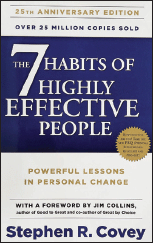What are you reading? Jie Li
Issue: XXX.6 November - December 2023Page: 16
Digital Citation
Authors:
Jie Li
The 1994 movie Eat Drink Man Woman, directed by Ang Lee, tells the story of widowed master chef Mr. Chu, who expresses his love for his family by preparing feasts every Sunday. During their last family meal, Mr. Chu shares a memorable speech: "Life is not like the mise en place before cooking. Life is spontaneous. You will never be fully prepared for it."

This speech deeply resonated with me. As someone inclined toward perfectionism, I often find myself meticulously planning, fearing unexpected situations, and spending excessive time in preparation without taking action. What's worse is that even when I am finally prepared, I may discover that my passion has diminished. Over the years, I've learned the importance of being proactive and realizing that seemingly insignificant tasks can lead to transformative changes.
Recently, while commuting, I've been absorbed in the audiobook of Stephen Covey's The 7 Habits of Highly Effective People. Initially, I was wary of books centered on productivity and self-management, but I decided to give it a chance as a non-native speaker of English looking for a convenient listen. To my surprise, I became captivated by the content and connected with the habits and real-life examples presented. Two habits that particularly caught my attention were "Be Proactive" and "Begin with the End in Mind." Although these habits sound simple, implementing them in my daily life has required significant effort to overcome perfectionism and procrastination.

As both an HCI/UX researcher and a pastry chef, my constant challenge is to ensure research rigor and deliver satisfactory cake outcomes despite facing limitations in time and equipment. These constraints have taught me to approach problems with a different perspective and find creative solutions.
Over the years, I've learned the importance of being proactive and realizing that seemingly insignificant tasks can lead to transformative changes.
Drawing parallels with HCI research, the Wizard of Oz research technique stands out. It involves manually operating the system behind the scenes while users interact with it, unaware of the orchestrated experience. This method allows for gathering valuable insights without the need for a fully functional prototype and demonstrates that a lack of resources does not have to hinder the achievement of research goals, such as evaluating a technology that requires expensive hardware or does not yet exist.
Similarly, I recall my student days when I lacked specialized baking tools and had to seek substitutes and adapt. Although I didn't need a Wizard per se, I had to get creative in making cakes when I couldn't attain the right equipment. For years, a metal mooncake box served as my baking tray, and I adjusted the temperature of my old, overly temperamental oven by gauging how much I should open the oven door. If a particular baking mold was unavailable, I explored alternatives like 3D printing to create it myself. I minimized the belief that I couldn't accomplish something due to lacking specific tools. In short, two crucial habits are "Be Proactive" and "Begin with the End in Mind."
My name is Jie Li. I am an HCI/UX researcher and the owner of a boutique café in the Netherlands. Beginning in the January—February 2024 issue, I will be hosting a column in ACM Interactions called Bits to Bites, where I will discuss various HCI research methods used in academia, industry, and diverse sectors such as fashion, food, automotive, and immersive technology.
Jie Li is head of research and insights at EPAM Netherlands. She has a Ph.D. in human-computer interaction from Delft University of Technology. She is also a cake artist and owner of the boutique café Cake Researcher. [email protected]
Copyright held by author
The Digital Library is published by the Association for Computing Machinery. Copyright © 2023 ACM, Inc.


